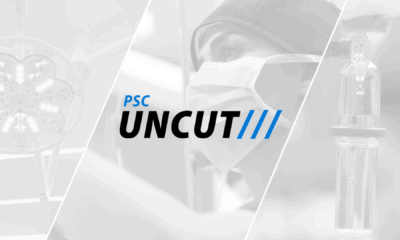Is it possible for breast implants to make a person sick? More and more breast augmentation patients are answering, “Yes.” Breast Implant Illness, or BII, is a catch-all term for an array of issues that may be caused by a woman’s breast implants. While there is no empirical evidence that breast implant illness is real, patients who suffer from it almost always feel better once their implants are removed. Which begs the question — why do some women have a reaction while others are fine?
Dr. Kristi Hustak of Houston, TX and Dr. Bruce Van Natta of Indianapolis, IN discuss this hot topic, as well as what needs to be done in the future to protect patients.
What is Breast Implant Illness?
“I love the opportunity to talk about this,” says Dr. Hustak; it is on the minds of every mommy blogger that she follows. But what is breast implant illness?
The fact that the question needs to be asked is a big part of the problem. “We haven’t defined it,” says Dr. Van Natta. “And you can’t study, learn about something, and treat it if you don’t know what it is.”
Breast implant illness is a term that sufferers came up with to describe a myriad of symptoms that they feel are being caused by their breast implants. These women feel horrible. They have gone to multiple doctors, been thoroughly tested, and yet no one can figure out what is wrong. By the time they get to a plastic surgeon, they are often at wit’s end.
BII Symptoms
The symptoms of breast implant illness may include one or more of the following:
- anxiety
- chronic fatigue
- brain fog
- joint pain
- hair loss
- dry eyes and/or mouth
- fever and flu-like symptoms
Breast implant illness patients feel that their symptoms are part of an autoimmune response in the body to the breast implant itself. However, this has never been shown to be true. The fact is, breast implants are the most studied medical device in the history of the world. The results from this colossal data set is implants are safe. At the same time, a breast implant is a foreign device that is being placed in the body. It is within the realm of possibility that someone’s body may decide to treat this device as an invading army and fight back.
Treating BII
If there isn’t hard evidence and proof, what are plastic surgeons to do? On the one hand, there are countless studies pointing to the safety of breast implants. On the other, there are patients who say that they are getting sick from their implants. Confusing the matter is the fact that breast implant illness symptoms are not very specific; they’re the same symptoms as countless other autoimmune diseases.
Furthermore, patients have now heard so much about breast implant illness from multiple media outlets that they often convince themselves that every little ache and pain is due to their breast implants. “I had a gal in the other day with chronic toe fungus who thought it was due to her implants,” explains Dr. Hustak. “But there is a subset of women who when you take out the implant and the scar tissue, they feel better.”
Dr. Van Natta has seen the same thing in his practice. His partner has a routine with her breast implant illness patients. She removes the implants, the scar tissue or capsule around the implants, and washes out the pocket with three liters of saline on each side. Virtually every patient who has this done comes back into the office and reports an improvement in their symptoms. “So, at the end of the day, we need to study this,” he shares. “It has become incumbent upon us as plastic surgeons to lead that charge.” Dr. Hustak agrees. “We want to do what’s safe for our patients.”
ALCL & BII
What about BIA-ALCL? Breast implant-associated anaplastic large cell lymphoma (BIA-ALCL) is a form of non-Hodgkin’s lymphoma or cancer of the immune system. It is often lumped together with breast implant illness, but it’s critical to look at them separately. BIA-ALCL is a real disease. There is a test to tell if a patient has it, and, when caught early, BIA-ALCL is highly treatable. It is also only found, thus far, in patients who have textured breast implants. Even though BIA-ALCL is scary and a possiblity for breast augmentation patients, it is extremely rare.
The risk of developing BIA-ALCL hovers somewhere between 1 in 3,000 and 1 in 30,000. For perspective, 1 in 8 women – regardless of breast augmentation surgery or not – will get breast cancer. In fact, there have only been 457 cases reported to date, but no one wants to be part of that group. The best way for any breast augmentation patient to protect her health is to take advantage of the yearly check up offered by her breast surgeon. And, if anything feels “off” in any way, to have it assessed immediately. Breast implants are safe, and some patients bodies seem to react to them. Until more is known about breast implant illness, it is best to err on the side of caution.












Facebook
Twitter
Instagram
YouTube
RSS